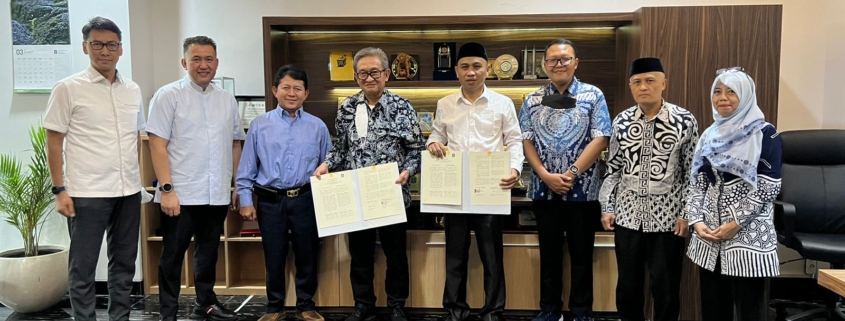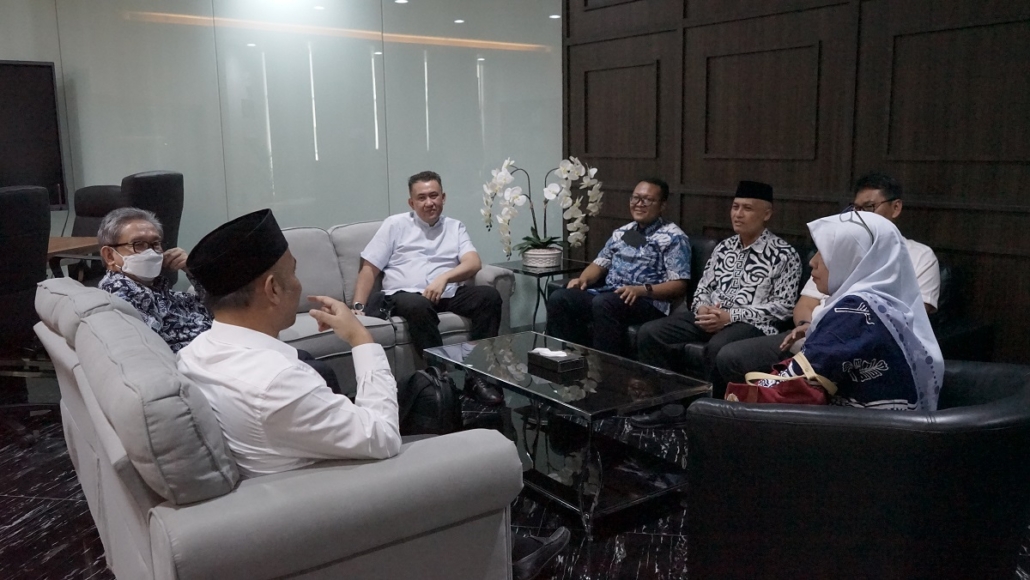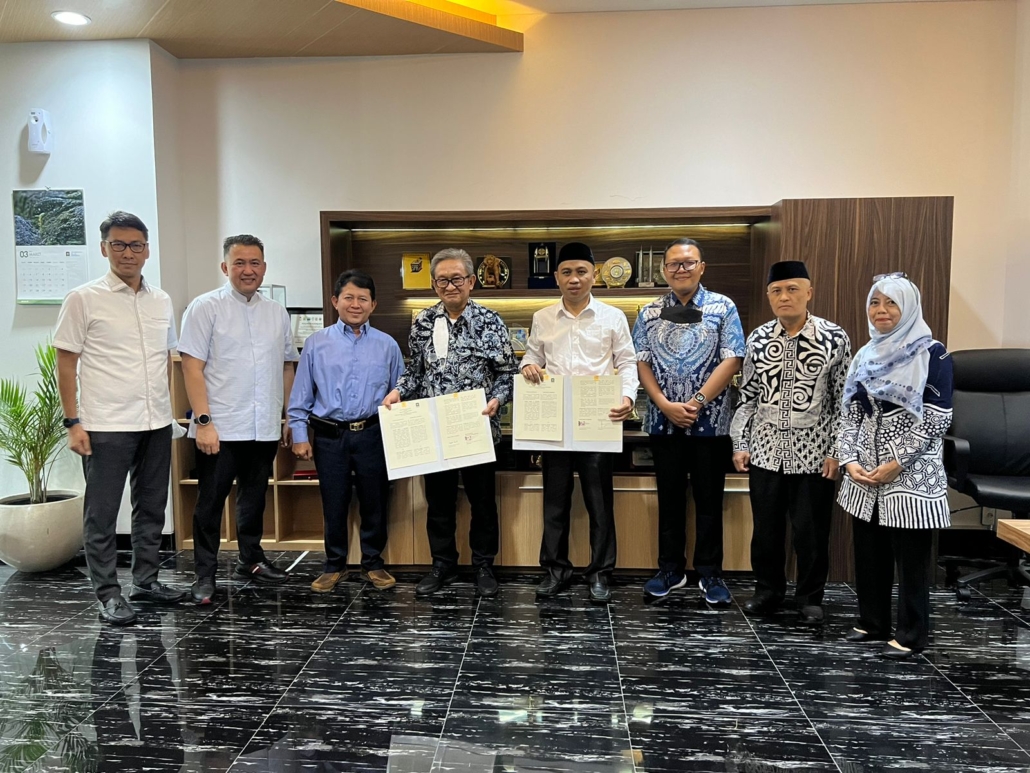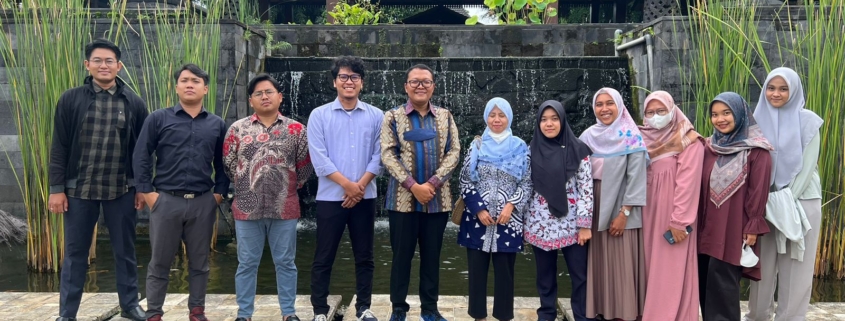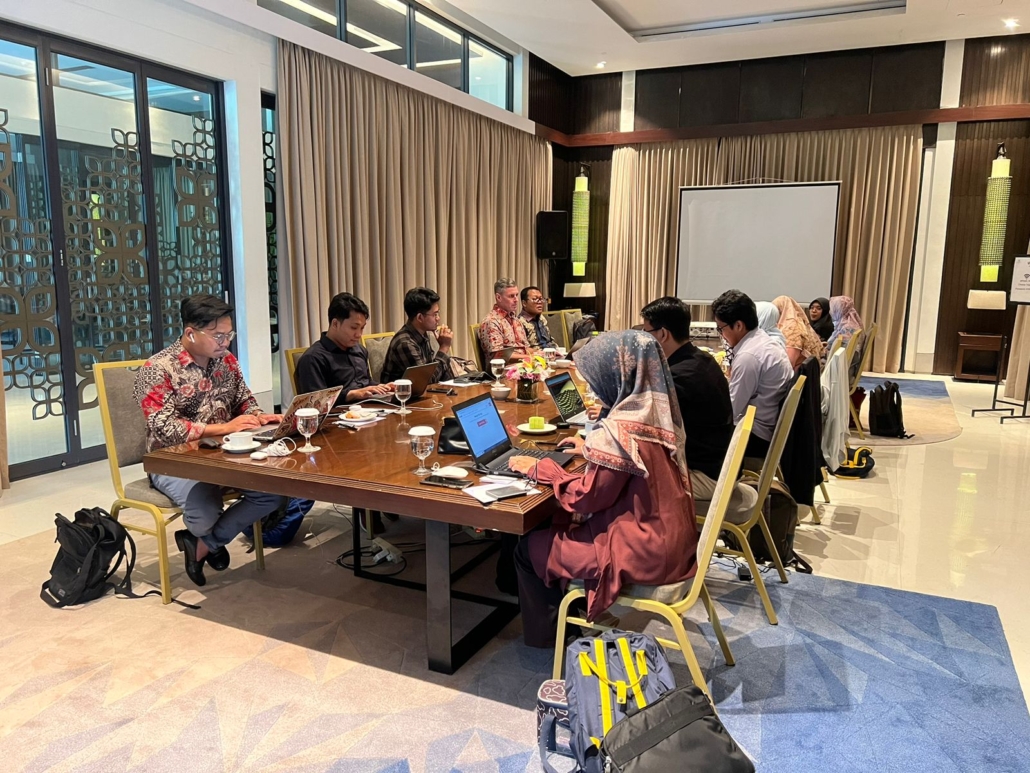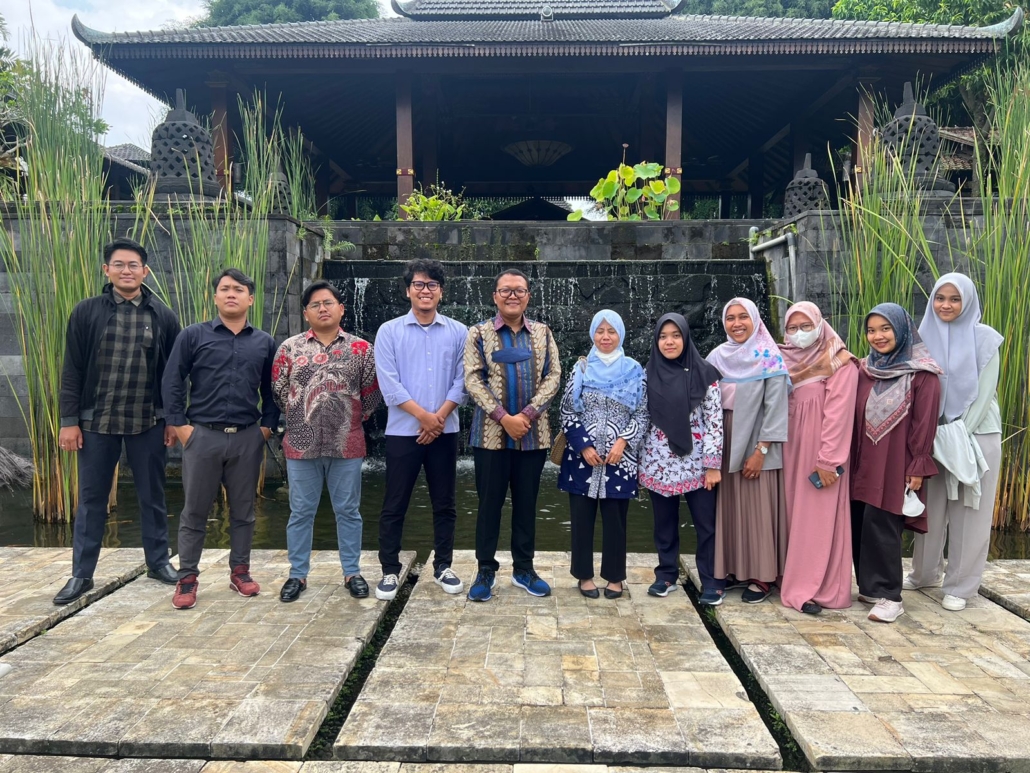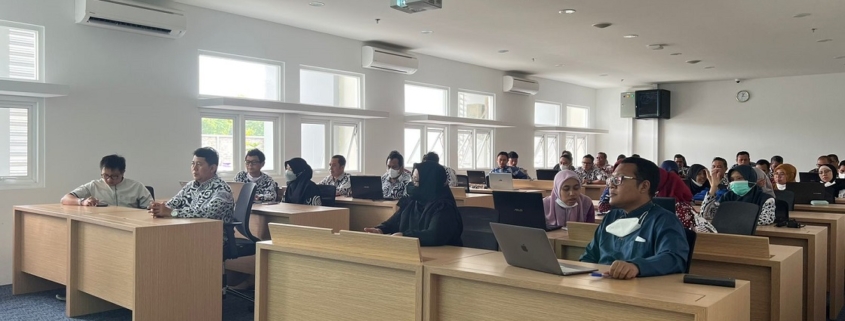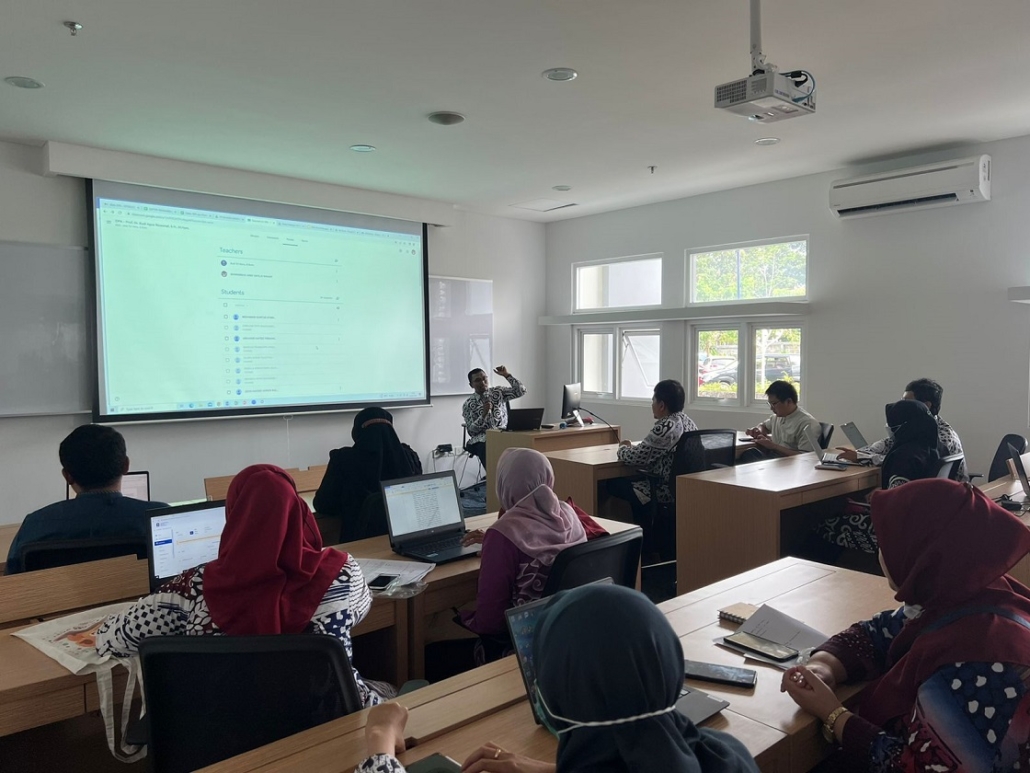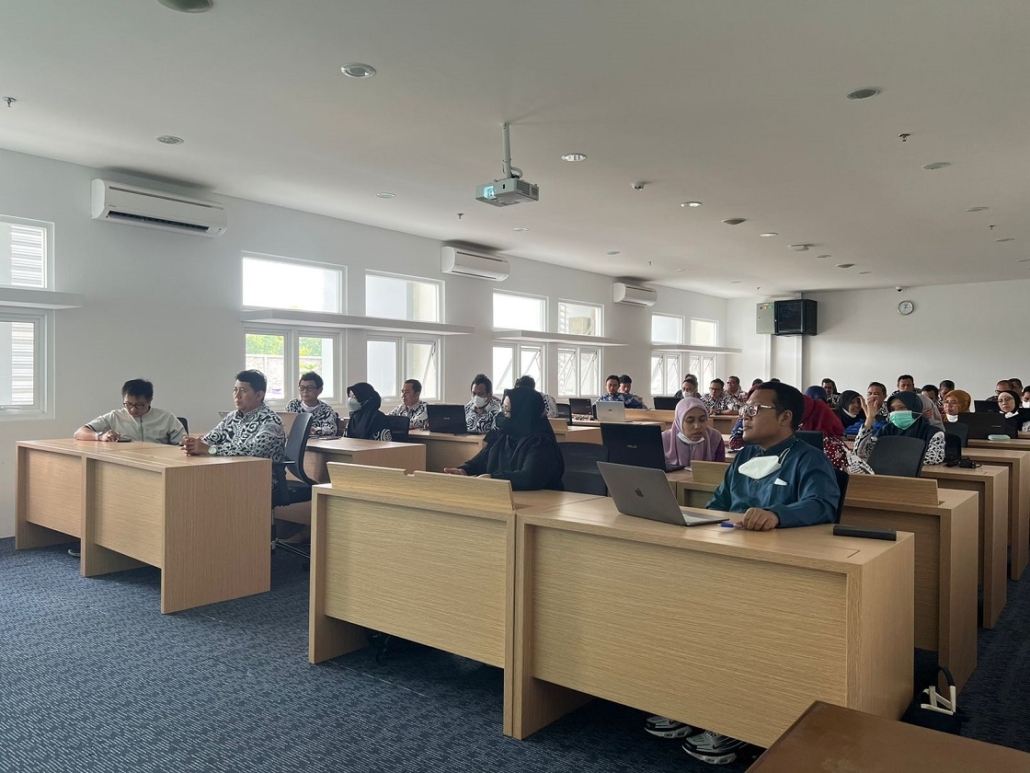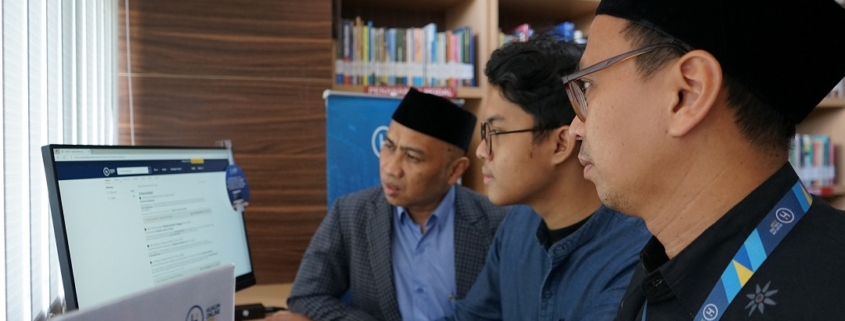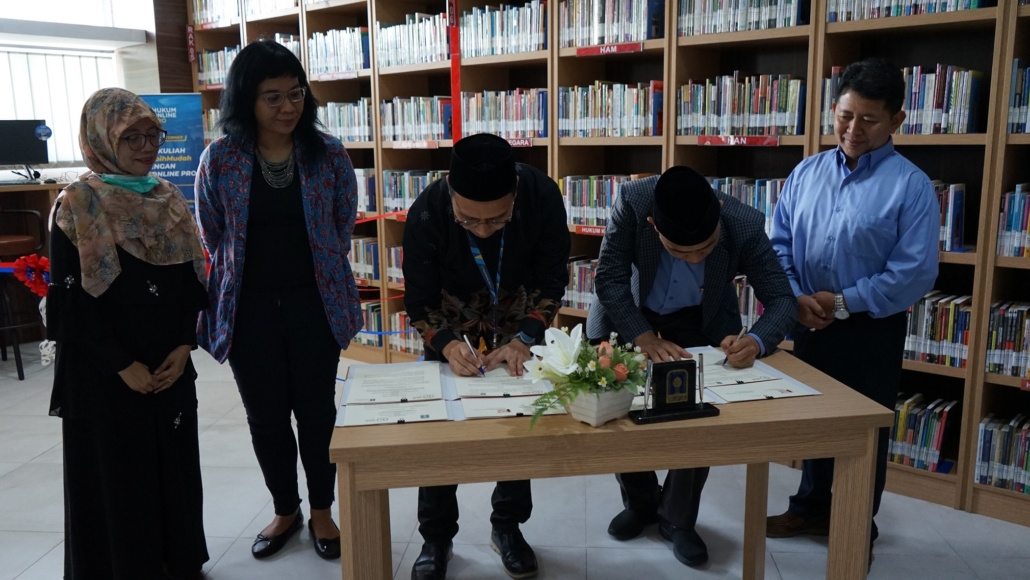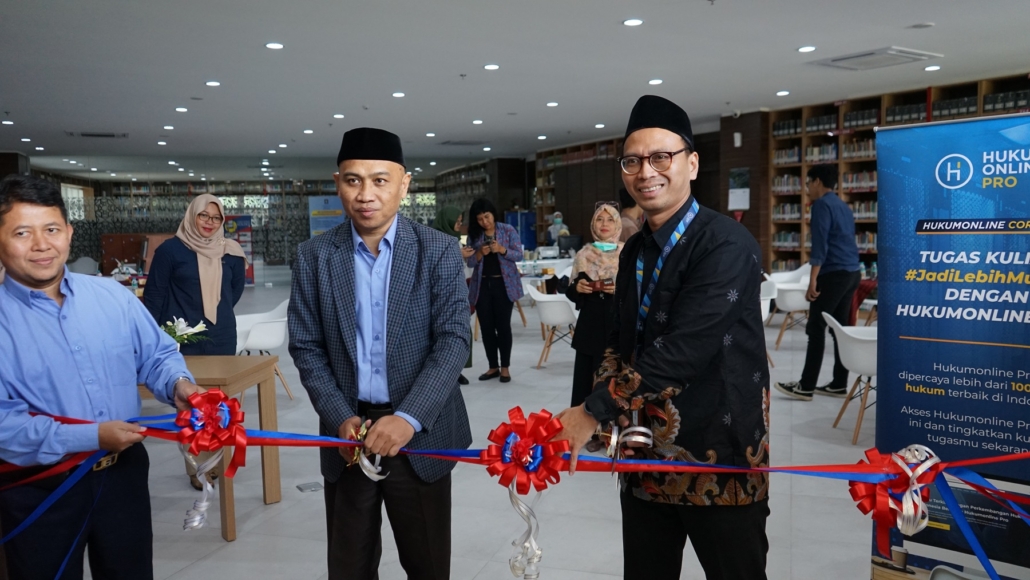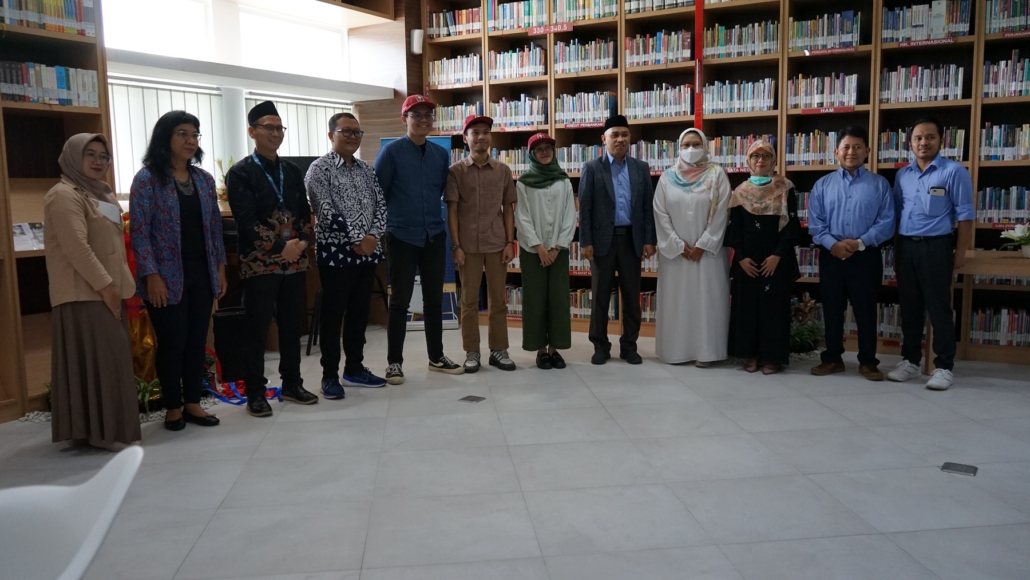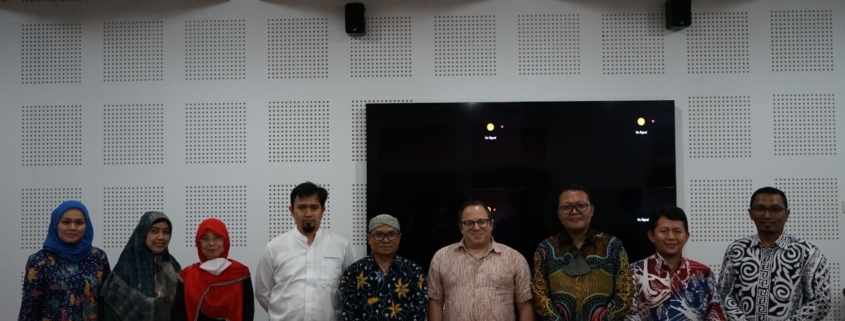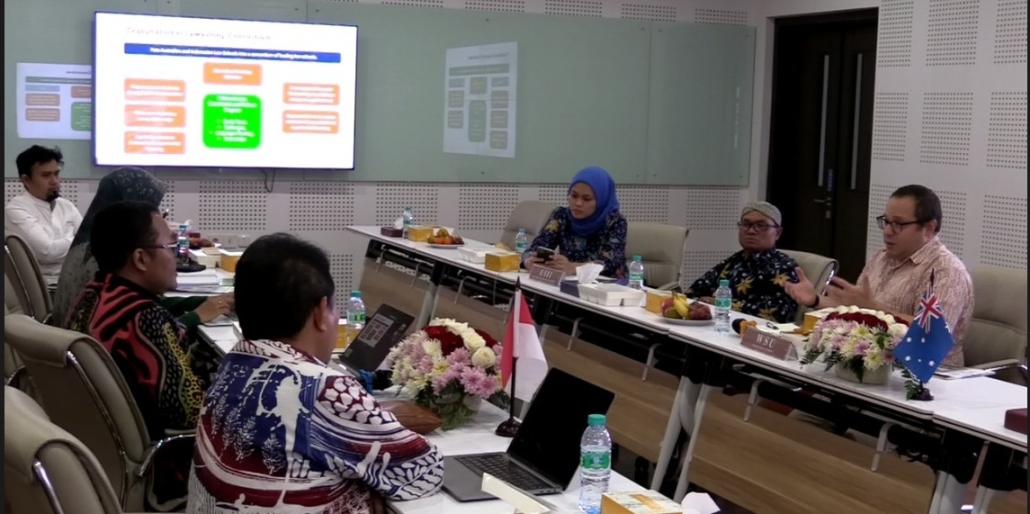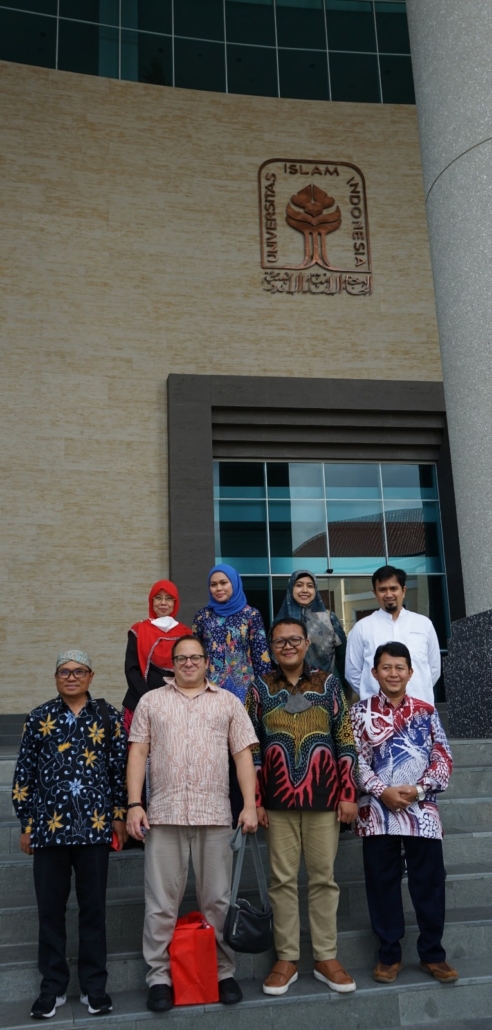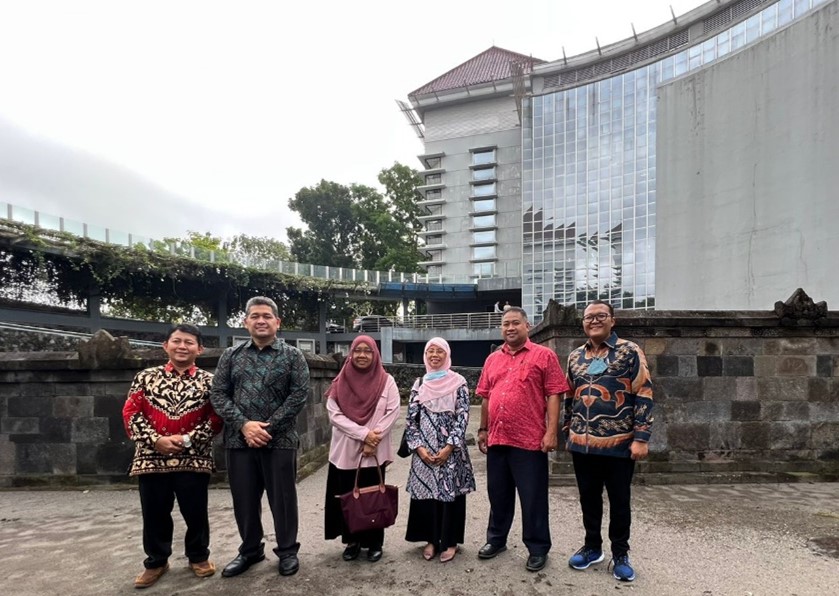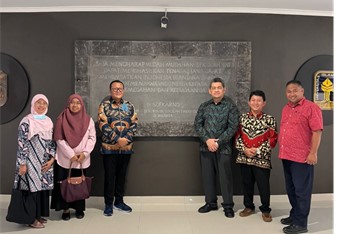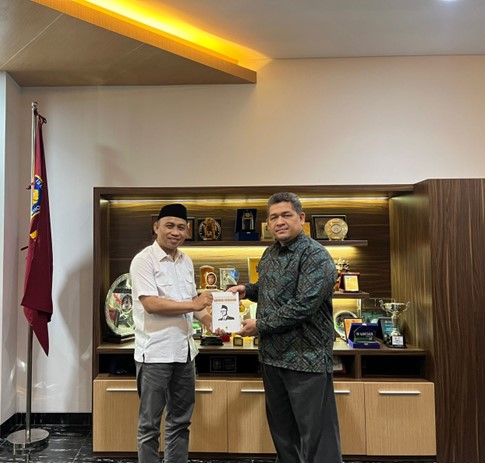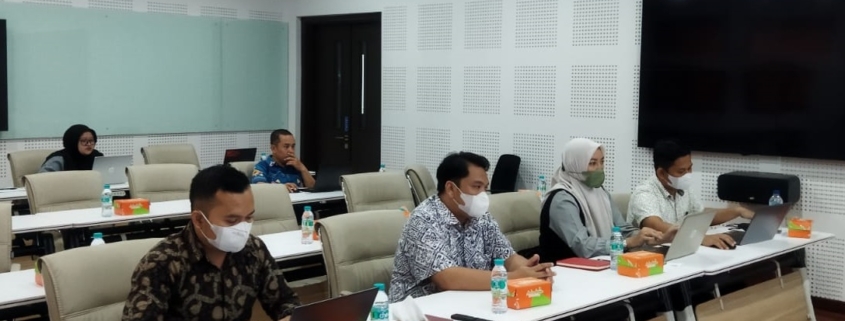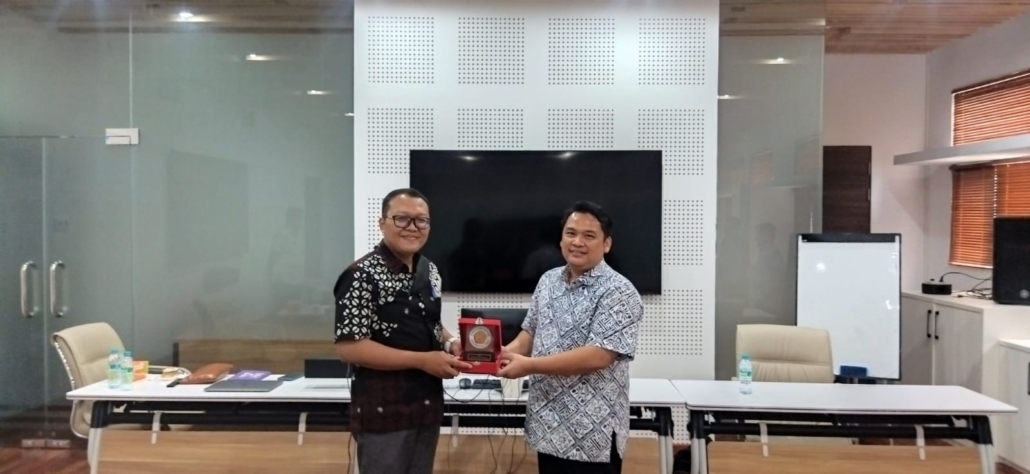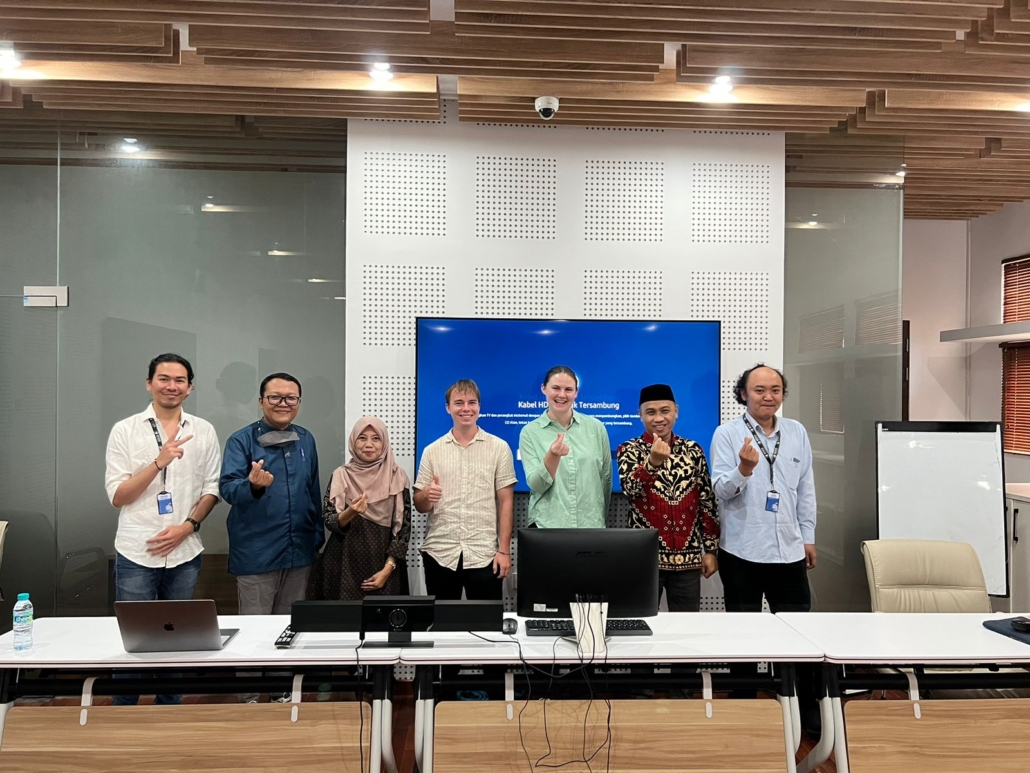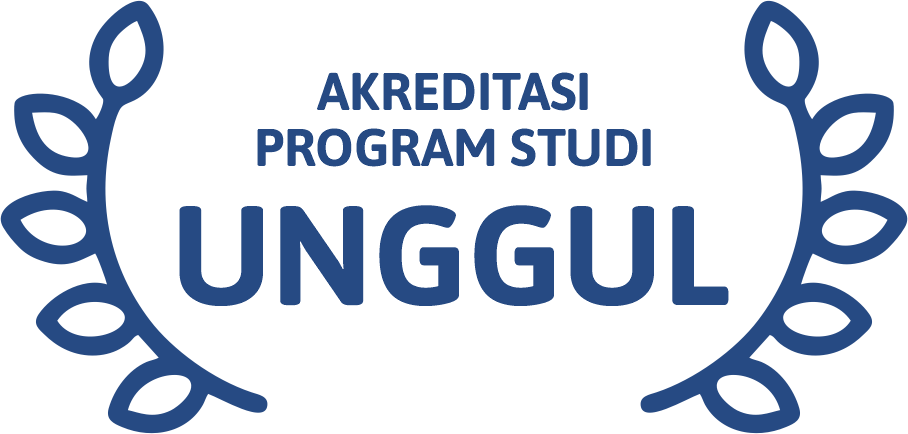“Fun!” Is one word spoken by all foreign students who take part in the 2023 Cultural Event organized by the International Program Undergraduate Study Program in Law, Faculty of Law, Universitas Islam Indonesia from Friday to Saturday April 7-8 2023 at D’Omah Hotel, Tembi Village tourist area, Bantul.
There were four foreign students who took part in this activity including: Meeran Hamid from Pakistan, Balogun Faidat Temitope from Nigeria, Anna Louise Williams and Thomas Matthias Kubler Shaw from Australia. In this program, students take part in various cultural programs to learn more about not only Yogyakarta culture but also matters relating to the influence of Islam on Yogyakarta culture.
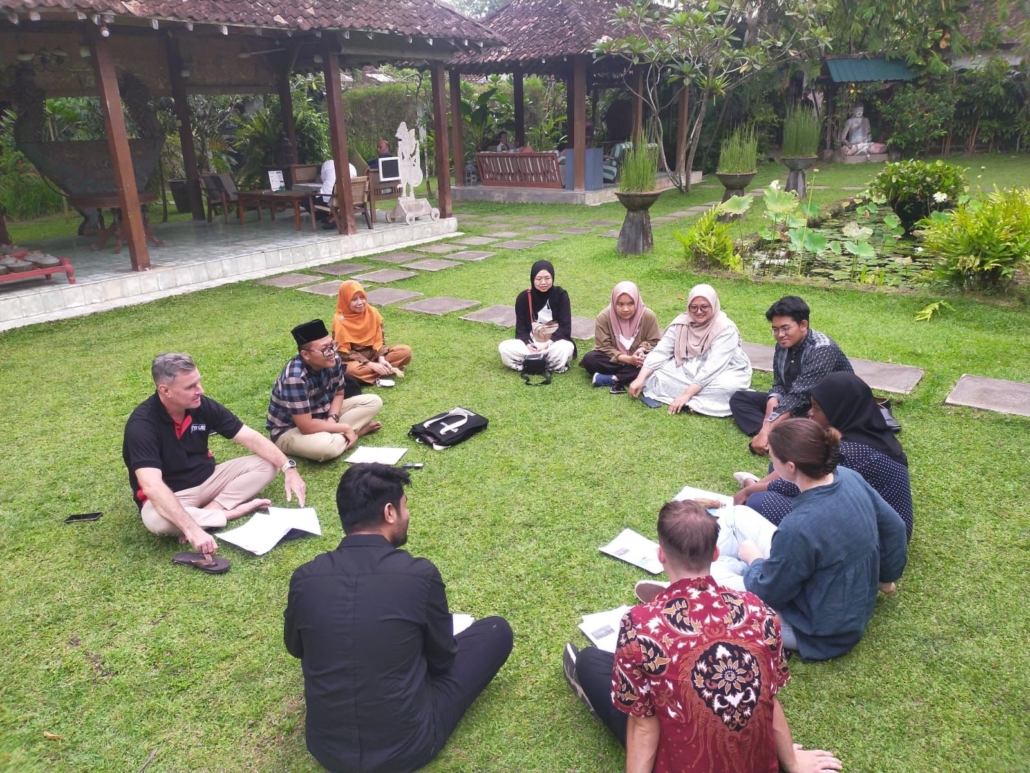
The Cultural Event began with a presentation session by Christopher M. Cason, JD., LL.M. as a lecturer at the Faculty of Law Universitas Islam Indonesia with the title “Understanding Islam: American Perspective” in this session foreign students shared stories about how Islam is known in their country and how the experience of being a minority in Indonesia. While the second presentation session was delivered by Dodik Setiawan Nur Heriyanto, S.H., M.H., LL.M., Ph.D. as Head of the Undergraduate Study Program in Law under theme “Islam and Yogyakarta’s Culture” among his explanations regarding the philosophy of the imaginary line connecting Mount Merapi, the Yogyakarta Palace, the Krapyak Stage and Parangtritis Beach. The activity was continued by playing traditional games, one of which was Dakon while going around doing sightseeing to see the atmosphere of the village in Tembi and nearby areas such as Parangtritis beach.
In his remarks, the Dean of the Faculty of Universitas Islam Indonesia, Prof. Budi Agus Riswandi, S.H., M.Hum. expressed gratitude and appreciation for the implementation of this Cultural Event. “I am very grateful to the foreign students at the Faculty of Law, Universitas Islam Indonesia who have entrusted them to study at the Faculty of Law, Universitas Islam Indonesia, both Part Time Study and Full Time Study. I hope students can gain experience and knowledge while studying in Yogyakarta and at UII. It is hoped that this program will provide benefits when they return to their respective countries.” concluded Prof. Budi Agus Riswandi, S.H., M.Hum. The Dean of the Faculty of Law Universitas Islam Indonesia while officially opening the Cultural Event.

Head of Undergraduate Study Program in Law, Faculty of Law, Universitas Islam Indonesia, Dodik Setiawan Nur Heriyanto, S.H., M.H., LL.M., Ph.D. stated that this Cultural Event will be held starting this year as well as a Pilot Project because the Undergraduate Study Program in Law will accept approximately 20 to 30 foreign students in the odd semesters of the 2023/2024 academic year. This Cultural Event is not only for students to learn lessons on campus but it is hoped that students can understand the cultural diversity that exists in Indonesia so that students are able to get to know the theory of Islamic values and universal values.
“The Yogyakarta culture that we introduce to students is very intact with introductions starting from a geographical perspective to detailed aspects related to Yogyakarta culture such as cultural architecture, the structure of the Mataram kingdom, and students also take part in batik training. Students are also expected to be able to understand how the influence of Islam is in Yogyakarta and what kind of Islamic values can be found at Universitas Islam Indonesia which are universal and can later be picked up and developed when they return to their respective countries.” said the Head Head of Undergraduate Study Program in Law, Faculty of Law, Universitas Islam Indonesia closed the coverage session.


